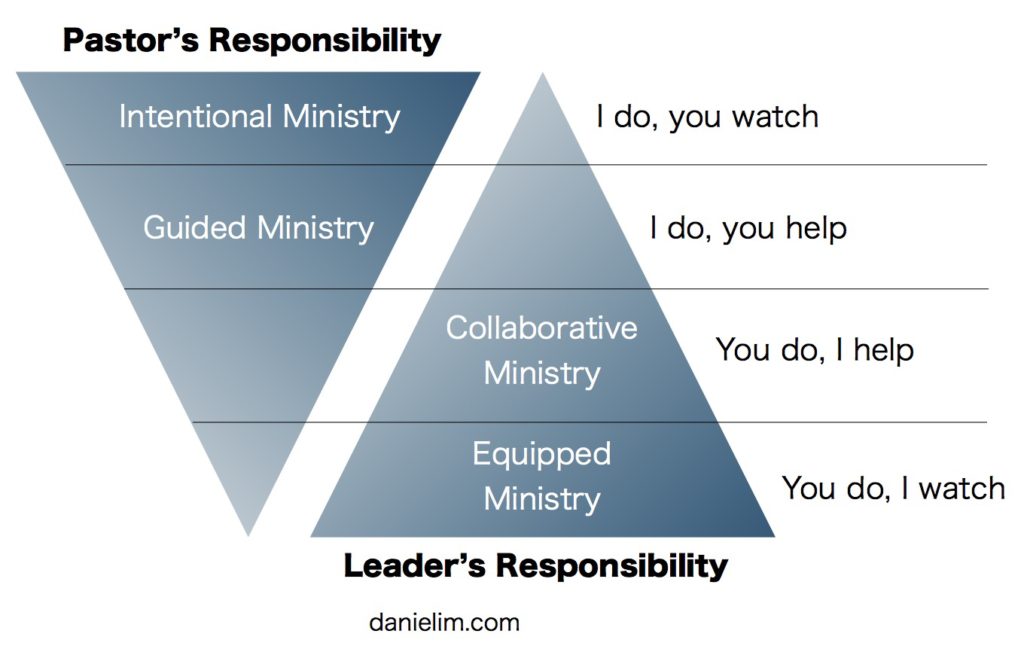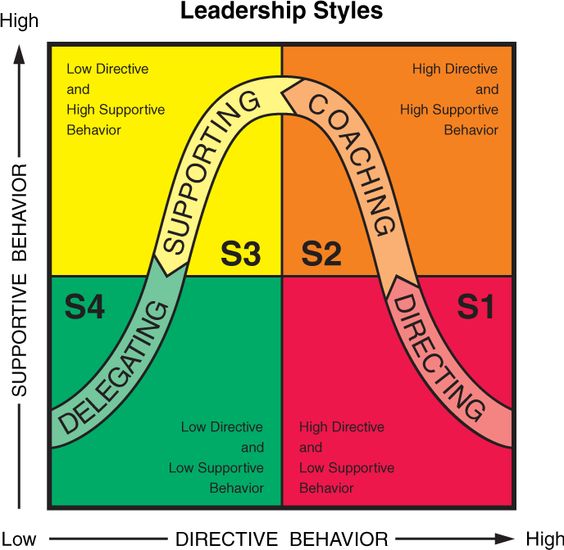
Leadership is often seen as leading those you have responsibility over—leading down. As we saw in Campus Pastor Skill #2, and as we’ll see in Campus Pastor Skill #4, leadership is more than just leading downwards.
But for the campus pastor, leading your leaders, staff, and your campus are the three broad areas that you need to pay attention to.
Let’s take a look at each of these areas:
1. Lead your leaders
In the NewChurches.com Q&A Podcast that I host with Ed Stetzer and Todd Adkins, we often tell pastors that there are two groups of people they always need to prioritize and spend the majority of their time with: leaders and the lost.
If you don’t take control of your schedule, and prioritize spending time with leaders and the lost, then others will grab hold of it and do it for you. There’s always more to do than we have time for. There’s always a crisis going on, someone getting married, another funeral to lead, and more opportunities to play golf than we have time for, so take control of your schedule and prioritize leaders and the lost.
No, I’m not talking about neglecting your congregation or forsaking your pastoral responsibilities to shepherd your congregation. In fact, it’s a healthy thing to occasionally do visitations with shut-ins, hospital visits, weddings, and funerals, but do not make this your priority!
You are called to be an EQUIPPER of those who will do the work of ministry, rather than the DOER of the ministry that impresses those who are watching.
The problem with this is that it feels good to DO ministry, doesn’t it? It feels good to disciple, to pray for others, to be wanted, needed, and respected, but don’t give into this!
Your real DOING is actually the task of EQUIPPING others who will DO the work of ministry.
When you do this, you will see the promises in Ephesians 4:11-16 come alive! Unity in your church. Maturity in Christ. Discernment. Love. Truth.
So let’s heed the advice that Jethro gave Moses in Exodus 18 and start with the fact that “You can’t do it alone.” Instead, you need to raise up leaders and teams who will do the majority of the pastoral care. You need to do the same with your children’s ministry, students, community groups, and guest services. Fortunately, being a campus pastor, you don’t need to worry as much about finances, operations, marketing, and HR since those typically fall under central services. You do need to know how to work with them though! See the previous article for tips on how to do that.
So take a piece of paper out and list out everything that you DO. In fact, list out all the hats that you’re wearing, and commit this next year to pray for, develop, train, and equip faithful volunteers who will take those hats from you and lead those areas. You are not shirking your responsibility, you are actually fulfilling it when you do this.
Now when you give one of your roles or responsibilities to someone else, don’t dump it on them! Instead, equip them using the gradual release of responsibility of model. Here’s my version of it tweaked for pastoral ministry.
- Intentional Ministry – This is when you are doing the work of ministry and your future leader is watching you. I do, you watch.
- Guided Ministry – This is when you are still doing the work of ministry, but you are guiding them through the steps so that they know how to do it themselves. I do, you help.
- Collaborative Ministry – This is when you are now doing the work of ministry together, but you are letting them take charge. You are there to help, when needed. You do, I help.
- Equipped Ministry – This is when you have fully equipped the leader and they are now leading the ministry. You are there to watch, but you have essentially moved onto repeating this same process with another future leader. You do, I watch.

If you repeat this process over and over again, then you will eventually have a team of ministry leaders that you can together lead the campus with.
2. Lead your staff
Whether small or large, multisite churches often have a staff team. Your team might be paid, volunteer, or a mix of the two, but the fact is you have a team. How do you view them? Do you see them as hirelings there to do what you say? Or are they often coming up to you with new ideas? How often do you play the veto card? Do you need to motivate them forward, or hold them back?
Ken Blanchard is most famously known for his Situational Leadership model as illustrated in the diagram below and in his book, Leadership and the One Minute Manager. He describes four different styles of leadership that you can use with those you manage and lead. However, the important thing here is movement. If one of your team members is in the S1 quadrant and you find yourself telling them exactly what they need to do, every step along the way, don’t feel like you made a bad hire and that they’re going to be stuck there for the rest of their life.
As you and your team member get to know one another, grow in trust, and good work is produced, then your relationship with them will move to the S2 quadrant where they will begin to pull a bit of their own weight, though you will still be giving them detailed instructions.
If performance improves and trust continues to increase, then the relationship could move to either S3 or eventually the S4 quadrant. However, don’t expect a time where all of your team members will be S4 because there will always be staff turn-over in the life of a church.

In addition, be sure to fight for your team. Defend them, care for them, and never leave them out to dry when you are with your peers or with their peers at other campuses. Give your team members the benefit of the doubt until they prove that they don’t deserve it. If you feel like you can’t trust one of your staff members for one reason or another, then bring them back to the S1 quadrant and work toward building that trust again. If, the issues that led to mistrust cannot be solved, then let them go and find another person for your team.
Trust is the foundation of every healthy team, so don’t think that you can build yours without it.
3. Lead your campus
Here are a few questions to help you reflect on how you’re doing leading your campus:
- Does your campus see you as their leader and pastor? Or do they see you as a glorified emcee?
- When you have a campus Sunday, where you cast local vision specific to your campus and neighborhood, does your attendance drop, or does it stay consistent?
- Do you advertise and participate in events happening at other campuses?
- Do you feel ownership over your campus?
- Do you feel personal responsibility over both the problems and the success stories at your campus?
The fact is, as the campus pastor, you represent the church to everyone who comes to your campus. So if you are not on the same page with the lead pastor, executive pastor, central services staff, or a fellow campus pastor, then it’s the unity of the church that suffers, not your ego.
Bury your ego and submit to the fact that almost every leader, no matter how high up you go, still needs to learn how to be under authority (Matthew 8:9). Even when you are a lead pastor, you still need to answer to your board, elders, or denomination. If you don’t have anyone you ever answer to, then you’re in a dangerous position, and ripe for spiritual attack and mayhem.
Be accountable and be under authority—for your sake, for your family’s sake, for your church’s sake, and for the sake of the Church.
When there are global discipleship initiatives or events being held at one of the larger campuses, or the main one, don’t be afraid that the members of your campus might get lured away by the big shiny lights. They’ve chosen your campus for a reason, so don’t worry. And don’t try to unnecessarily host those seminars or events yourself, while waving the flag of contextualization—especially when the leadership has already decided that they were going to be global events! Essentially, don’t deprive your campus from the benefits that come with being a campus in a multisite church.
In the same way, be a unique campus to your neighborhood!
Be strategic and opportunistic when it comes to being salt and light in your neighborhood. Plan together with the other campuses as to how you’ll strategically minister to and have outreach initiatives across the city. Have standards for how you’ll evaluate partnerships as well. But at the same time, be open to the move of the Holy Spirit when an organic opportunity comes up to share the gospel and meet a local need around your campus.
Join me next time as I address Campus Pastor Skill #4: How to Lead Up.
Be sure to check out Campus Pastor Skill #1: How to Close a Service, and Campus Pastor Skill #2: How to Lead Across. I’ve been receiving great responses on these and have already heard of churches beginning to use them.